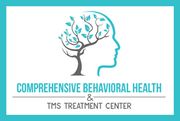
Treating depression can be a real challenge, especially if conventional therapies have proven ineffective. Transcranial magnetic stimulation (TMS) therapy can be beneficial in this case, which is why more and more medical professionals are suggesting it to patients suffering from depressive episodes. Knowing how TMS works is the first step towards understanding whether this treatment is right for you.
A Brief Guide to TMS Therapy
For people struggling with depression, behavioral therapy and medication are commonly used to treat symptoms. However, these treatments aren’t effective for everyone; in this case, TMS therapy can be used as an alternative.
 This therapy uses magnetic fields transferred into specific areas of the brain using an electromagnetic coil. These fields are intended to stimulate certain regions that are thought to regulate mood and emotions. This therapy is also thought to activate other areas of the brain that are often inactive in patients suffering from depression, although the exact mechanisms are not yet completely understood.
This therapy uses magnetic fields transferred into specific areas of the brain using an electromagnetic coil. These fields are intended to stimulate certain regions that are thought to regulate mood and emotions. This therapy is also thought to activate other areas of the brain that are often inactive in patients suffering from depression, although the exact mechanisms are not yet completely understood.
Because the therapy is non-invasive, it’s isn’t associated with the same risks or complications as something like deep brain stimulation, which entails implanting electrodes in your brain. There are a few possible side effects, including headaches, lightheadedness, and discomfort in the area where the coil is placed. However, these side effects tend to be minor.
For the best results patients will undergo sessions as many as five times a week. Sessions usually last approximately 40 minutes, and the majority of patients are able to resume normal activities immediately after. Your doctor will need to map your brain first, which involves sending increasingly stronger impulses until a physical response occurs, such as twitching fingers.
If you’re in search of assistance with a mental health issue, the kind and caring team at Comprehensive Behavioral Health can help. This Fishersville, VA, facility has experience treating a wide range of psychiatric disorders, including depression. Visit the website to learn more about TMS and its benefits. If you’d like to schedule an appointment, call (540) 688-2646 today. With the right help, you can work to overcome mental disorders and get back to you.
About the Business
Have a question? Ask the experts!
Send your question

